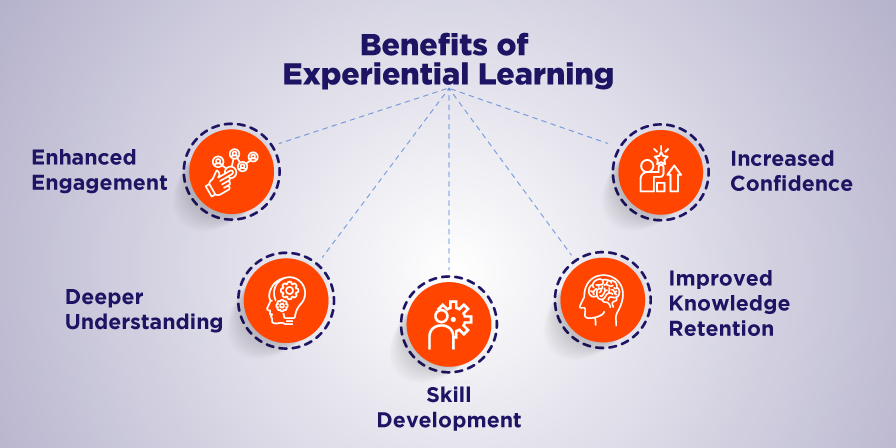Experiential learning has steadily gained recognition as one of the most effective approaches to education and professional development. Unlike traditional learning methods that often rely heavily on theoretical instruction, experiential learning immerses individuals in real-world experiences that foster deeper understanding and lasting skills. This hands-on approach bridges the gap between theory and practice, creating opportunities for learners to engage actively with material and reflect on their experiences. The benefits of experiential learning extend far beyond the classroom, offering valuable insights and competencies that resonate in business, education, and personal growth.
One of the most compelling advantages of experiential learning lies in its ability to make abstract concepts tangible. When learners are encouraged to apply theories in practical settings, they move beyond memorization to true comprehension. For example, a business student studying leadership principles can gain a much richer understanding by participating in a team project or managing a small group rather than simply reading about leadership styles. This direct involvement helps learners connect ideas to outcomes, revealing how decisions impact results. It also allows for trial and error, where mistakes become powerful learning moments rather than setbacks.
Experiential learning also encourages active engagement, which is critical for retaining knowledge and developing critical skills. Passive learning, such as listening to lectures or reading textbooks, can often lead to surface-level understanding that fades quickly. In contrast, when learners are actively involved—whether through simulations, internships, role-playing, or problem-solving exercises—they are more likely to internalize information and remember it longer. Consider a marketing professional who attends a workshop that includes creating and pitching a campaign rather than just hearing about marketing theories. The hands-on experience helps reinforce concepts and builds confidence, preparing them to apply their skills in real situations.
Another important benefit of experiential learning is the development of soft skills that are essential in today’s professional landscape. Communication, teamwork, adaptability, and problem-solving are often best honed through experience rather than theory alone. For instance, an internship or cooperative education placement places learners in environments where collaboration with diverse colleagues and clients is routine. These interactions cultivate emotional intelligence and interpersonal skills that textbooks cannot fully teach. By navigating real challenges and uncertainties, learners build resilience and flexibility, qualities that are invaluable in dynamic workplaces.
Furthermore, experiential learning fosters self-reflection and critical thinking. After engaging in an activity or project, learners are encouraged to analyze what went well, what could be improved, and how their assumptions influenced outcomes. This reflective practice deepens insight and encourages a mindset of continuous improvement. For example, a software developer working on a team project might reflect on communication breakdowns or technical hurdles encountered during development, leading to more effective strategies in future projects. Such reflection turns experience into knowledge, making learning cyclical and ongoing rather than one-off events.
Experiential learning also promotes motivation and enthusiasm by connecting learning to real-world relevance. When learners see the immediate application of their efforts, they are more invested in the process. This relevance drives intrinsic motivation, which research shows leads to better learning outcomes. A medical student who participates in clinical rounds or a law student who interns at a firm is likely to feel a greater sense of purpose and engagement than one who only studies textbooks. The connection between effort and impact makes learning meaningful and satisfying, fueling a positive feedback loop of curiosity and commitment.
From an organizational perspective, experiential learning offers businesses a strategic advantage in workforce development. Employees trained through hands-on approaches tend to be better prepared to face practical challenges and contribute creatively to problem-solving. Companies that invest in experiential learning opportunities—such as apprenticeships, mentorship programs, or project-based assignments—often see increased employee engagement, improved performance, and lower turnover rates. For example, a tech company that encourages its engineers to participate in innovation labs or hackathons taps into experiential learning to foster creativity and collaboration, driving business growth and innovation.
Moreover, experiential learning supports adaptability in an ever-changing business environment. As industries evolve rapidly due to technological advances and shifting market demands, the ability to learn by doing helps individuals and organizations stay agile. Those who rely solely on theoretical knowledge may struggle to keep pace, while experiential learners continuously refine their skills and approaches based on real-time feedback. This adaptability becomes a critical asset, enabling professionals to pivot, innovate, and thrive amid uncertainty.
It is also worth noting that experiential learning nurtures lifelong learning habits. By engaging in experiences that require active problem-solving and reflection, learners develop a mindset geared toward continuous growth. This mindset is essential in a world where skills can quickly become obsolete and where new knowledge is constantly emerging. Lifelong learners who embrace experiential approaches remain curious, open, and ready to acquire new competencies throughout their careers and lives.
In summary, the benefits of experiential learning are wide-ranging and deeply impactful. By immersing learners in real-world scenarios, this approach transforms abstract knowledge into practical wisdom. It cultivates critical skills, fosters motivation, and nurtures adaptability, all while encouraging reflection and continuous growth. Whether in education, business, or personal development, experiential learning equips individuals with the tools they need to succeed and flourish. As the world grows increasingly complex and interconnected, embracing experiential learning is not just beneficial—it is essential for meaningful and lasting success.




